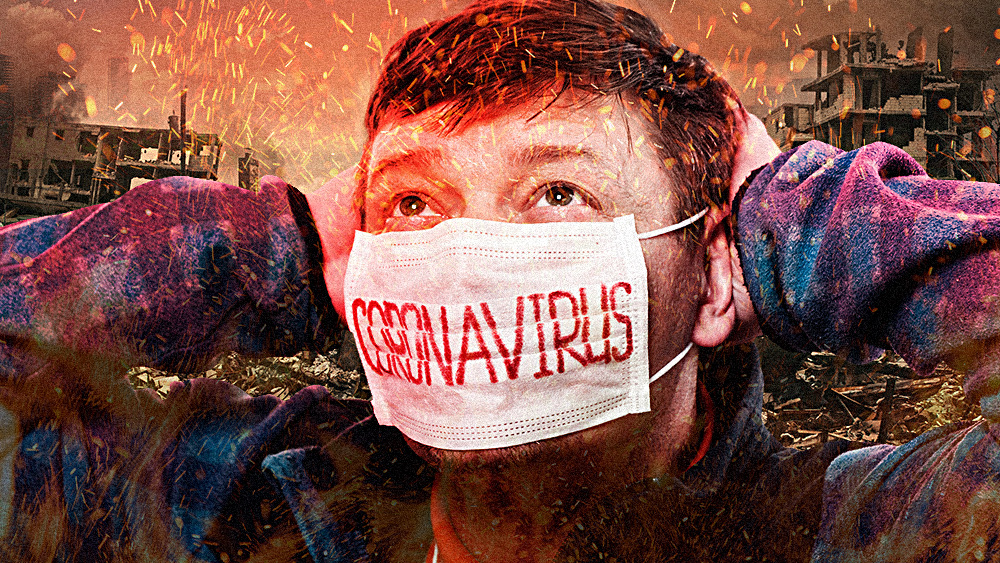10 Supplements that can help curb your anxiety
04/22/2020 / By Janine Acero

Anxiety comes in many forms. It can cause worry, unease, fear or panic. Severe forms of anxiety, or anxiety disorders, are among the most common and pervasive mental health problems in the United States today. Anxiety disorders include panic disorders and phobias.
Common treatment options for anxiety disorders include therapy, medication or a combination of both. However, there is significant scientific evidence suggesting that the following supplements and herbal remedies can safely and effectively relieve the symptoms of anxiety.
Supplements
Vitamins and minerals nourish your body and mind, helping you to deal with stress.
Vitamin D
Vitamin D is important for mood regulation, as well as nerve and brain health. Research suggests that vitamin D deficiency plays a role in anxiety disorders.
Let your skin soak up some sunlight in the morning so your body can produce vitamin D. You can also get vitamin D by taking supplements, as well as by consuming certain foods, such as oily fish (salmon, mackerel), mushrooms, egg yolks and fortified foods like cow’s milk, orange juice and breakfast cereals.
Vitamin B complex
Vitamin B complex is the collective term for all eight types of vitamin B: thiamine (B1), riboflavin (B2), niacin (B3), pantothenic acid (B5), pyridoxine (B6), biotin (B7), folate (B9) and cobalamin (B12). These nutrients work synergistically to manage many bodily processes, including the regulation of stress levels.
Research suggests that vitamin B deficiency, particularly B12, plays a role in depression and anxiety.
Aside from taking B complex supplements, make room for vitamin B-rich foods in your regular diet, such as salmon, trout, green leafy vegetables, legumes, liver and organ meats, eggs, shellfish (oysters, clams, mussels) and poultry meat (chicken, turkey).
Magnesium
Almost every system in the human body needs magnesium to function properly. Research suggests that taking magnesium supplements may help reduce anxiety symptoms.
Aside from supplements, certain foods can also provide plenty of magnesium. These include whole wheat, spinach, quinoa, almonds, cashews, black beans and dark chocolate.
L-theanine
Research suggests that l-theanine, an amino acid found in green and black tea, has mild sedative and anti-anxiety effects. One particular study found that participants who consumed a beverage containing 200 mg of l-theanine had lower stress response and cortisol levels after performing a challenging task.
If you wish to take l-theanine supplements, start with the lowest effective dosage, usually 200 mg. Do not exceed that dosage without consulting your natural health practitioner first.
Multivitamins and minerals
People with anxiety may benefit from taking supplements that contain a variety of vitamins and minerals. One study found that supplements containing B vitamins, vitamin C, calcium, magnesium and zinc can help reduce anxiety symptoms in young adults.
Omega-3 fatty acids
Omega-3 fatty acids have been extensively studied for their health benefits, particularly their effect on brain function. Research suggests that supplementation with omega-3 fatty acids, such as from fish oil, may help reduce the severity of anxiety symptoms. Conversely, having low levels of omega-3 fatty acids may increase the risk of anxiety and depression.
You can get your daily dose of brain-supporting omega-3 fatty acids from dietary sources, such as:
- Fish (salmon, mackerel, sardines, sea bass, trout)
- Seafood (oysters, shrimp)
- Seeds (chia, hemp, flax)
- Beans (kidney beans, edamame, soybean oil)
- Seaweed and algae
- Walnuts
You can also take omega-3 fatty acid supplements in the form of fish oil, cod liver oil, krill oil, algae oil (for vegans and vegetarians) and ALA supplements.
Herbal remedies
Many herbs can be used to alleviate stress.
Valerian root
The root of Valeriana officinalis has been used as a natural remedy for thousands of years to address sleep problems, digestive problems, headaches, arthritis and nervous system disorders. Today, valerian root supplements are used to relieve insomnia, anxiety, depression and menopause symptoms.
Chamomile
Chamomile is widely used to make an herbal tea with a calming effect. Studies suggest that chamomile supplements are just as effective at relieving symptoms of generalized anxiety disorder (GAD) as anti-anxiety drugs. You can relax at the end of the day with a nice cup of chamomile tea.
Lavender
Lavender is a popular herb used in aromatherapy to promote relaxation. Research suggests that smelling lavender can help ease anxiety, especially for those who are about to go under the knife.
Lemon balm
Like lavender, lemon balm is an herb that promotes calmness. A study found that daily supplementation with dried lemon balm helps reduce anxiety levels in patients who had undergone coronary artery bypass surgery.
The safety and efficacy of dietary supplements and herbal remedies are constantly being studied and scientifically verified. That said, consult your natural health practitioner before taking any supplements, especially if you’re currently under medication for a certain condition.
Sources include:
BioMed.Cas.cz [PDF]
Tagged Under: alternative medicine, Anxiety, anxiety disorders, anxiety relief, herbal medicine, Herbs, mental health, mind body science, minerals, multivitamins, natural cures, natural medicine, nutrients, omega-3 fatty acids, remedies, stress, supplements, vitamins


















